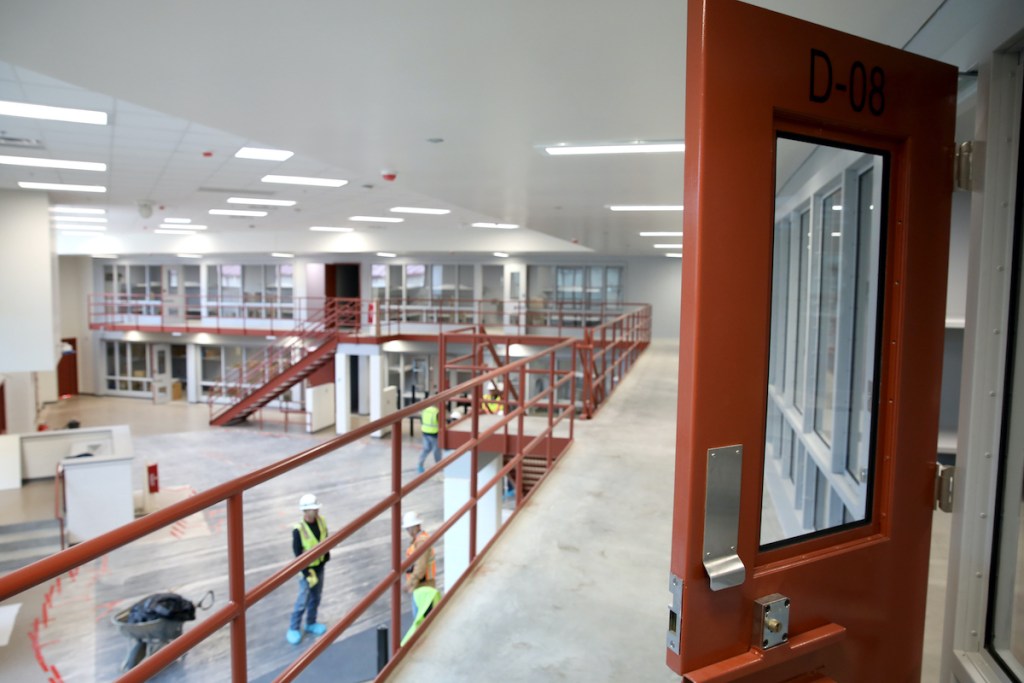The number of medical- and mental-health-related grievances filed by inmates in the Santa Barbara County Jail — both the Northern Branch and South County’s Main Jail — increased by more than 50 percent a month in 2023 over the monthly average established over the five preceding years.
The number of grievances filed overall — for reasons medical and non-medical — increased from 1,292 in 2020 to 1,646 in 2023. Medical-related grievances in that same time jumped from 263 to 543. In that same period, monthly jail population shifted from 673 to 759.
Contributing to the rise was the COVID crisis, which saw an increase in inmate medical need. But also contributing were staff shortages both among custody officers working for the County Sheriff’s Office and for medical personnel hired by Wellpath, the private contracting firm hired by the county to provide health care in the jail. During the same period, county jail officers also made grievance forms more available to inmates.
When the item came up for a cursory discussion this Tuesday, the county supervisors were told that 94 percent of grievances were resolved to the satisfaction of the inmates making them. What that meant, however, was not spelled out.
The written report noted that the average lapse of time between when the grievances were filed and when they were responded to was 5.2 days. Response time for six grievances exceeded 15 days.
Twenty-seven grievances were filed for inadequate dental care, a 42 percent jump over the five-year average. The jump in mental-health complaints — usually involving lack of medication or wrong dosages — was 35.7 percent.
Nearly 13 percent of the grievances involved lack of access to what’s known as Medication Assisted Treatment (MAT). That acronym refers to methadone treatment for individuals addicted to opiates, a program launched only in the last year.
In many cases, the report noted, some grievances had been filed multiple times or by people who either refused treatment or had been released from county jail. The sheriff created a jail grievance oversight committee in 2016. The committee inadvertently stopped submitting annual reports in 2020; this year’s report was the first since then.
Longtime mental-health advocate Lynne Gibbs, who served on the county’s grievance oversight committee early on in its incarnation, said she’d heard recently that multiple inmates had taken to shouting out “Man down!” in cases where they believed medical treatment was not being provided in a timely basis.
The issue was placed on the county’s administrative agenda, meaning it wasn’t slated for a formal presentation from which a robust back-and-forth might ensue. Only Supervisor Laura Capps asked any questions, and only one member of the public spoke.
Even so, jail mental health care has emerged in the past year as a particularly hot issue, with the Wellpath contract slated for renewal in the next month. On April 3, the supervisors are scheduled to take a deeper dive into the quality of mental health care dispensed in county jail and the limited options available to the supervisors.
Several months ago, the supervisors voted to give the County Public Health Department — for the first time — some limited oversight responsibilities for the medical and mental-health care provided in the county jail. In addition, acute crises response teams from the county’s Department of Behavioral Wellness have been reassigned to work out of the county jail instead of their traditional offices. This reassignment, however, has triggered resistance by the union representing these workers, which has argued such changes in working conditions must be hammered out at the bargaining table rather than being imposed by administrative or executive fiat.

